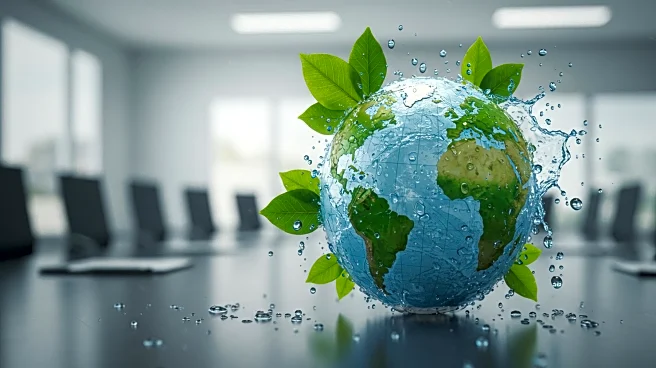What's Happening?
In Geneva, a United Nations conference aimed at establishing a legally binding treaty on plastic pollution faced significant setbacks. Despite initial agreements by 175 nations in March 2022 to finalize the treaty by the end of 2024, the conference ended without a resolution. Key countries, including Colombia, the EU, and the UK, rejected the draft treaty text, citing its lack of production caps and failure to address toxic chemicals. Oil-producing nations, referred to as 'petrostates,' opposed any limitations on plastic production, advocating for recycling instead. This stance was met with criticism from island nations and environmental groups, who argued that the draft treaty was biased and inadequate.
Why It's Important?
The disruption of the UN plastics conference highlights the ongoing struggle between environmental advocates and oil-producing nations over plastic production. The failure to reach a consensus on limiting production and addressing harmful chemicals has significant implications for global environmental policy. Countries most affected by plastic waste, particularly small island developing states, face disproportionate challenges in managing pollution. The lack of progress in Geneva underscores the influence of petrochemical lobbyists and the complexities of international negotiations, potentially delaying effective global action against plastic pollution.
What's Next?
The conference's collapse suggests further negotiations will be necessary to achieve a meaningful treaty. Environmental groups and affected nations are likely to continue advocating for stronger measures, including production caps and financial support for waste management. The ongoing debate may lead to increased pressure on petrochemical industries and oil-producing countries to compromise. Future discussions will need to address procedural issues and ensure equitable participation to avoid repeating the Geneva conference's shortcomings.
Beyond the Headlines
The conference's failure to produce a treaty reflects broader challenges in international environmental diplomacy. The influence of powerful petrochemical lobbyists and the procedural hurdles faced by smaller nations highlight the need for reform in global negotiation processes. The situation raises ethical questions about the responsibility of major polluters and the need for a just transition that supports vulnerable communities. Long-term, the stalled treaty could impact global efforts to combat plastic pollution and shift towards sustainable practices.












